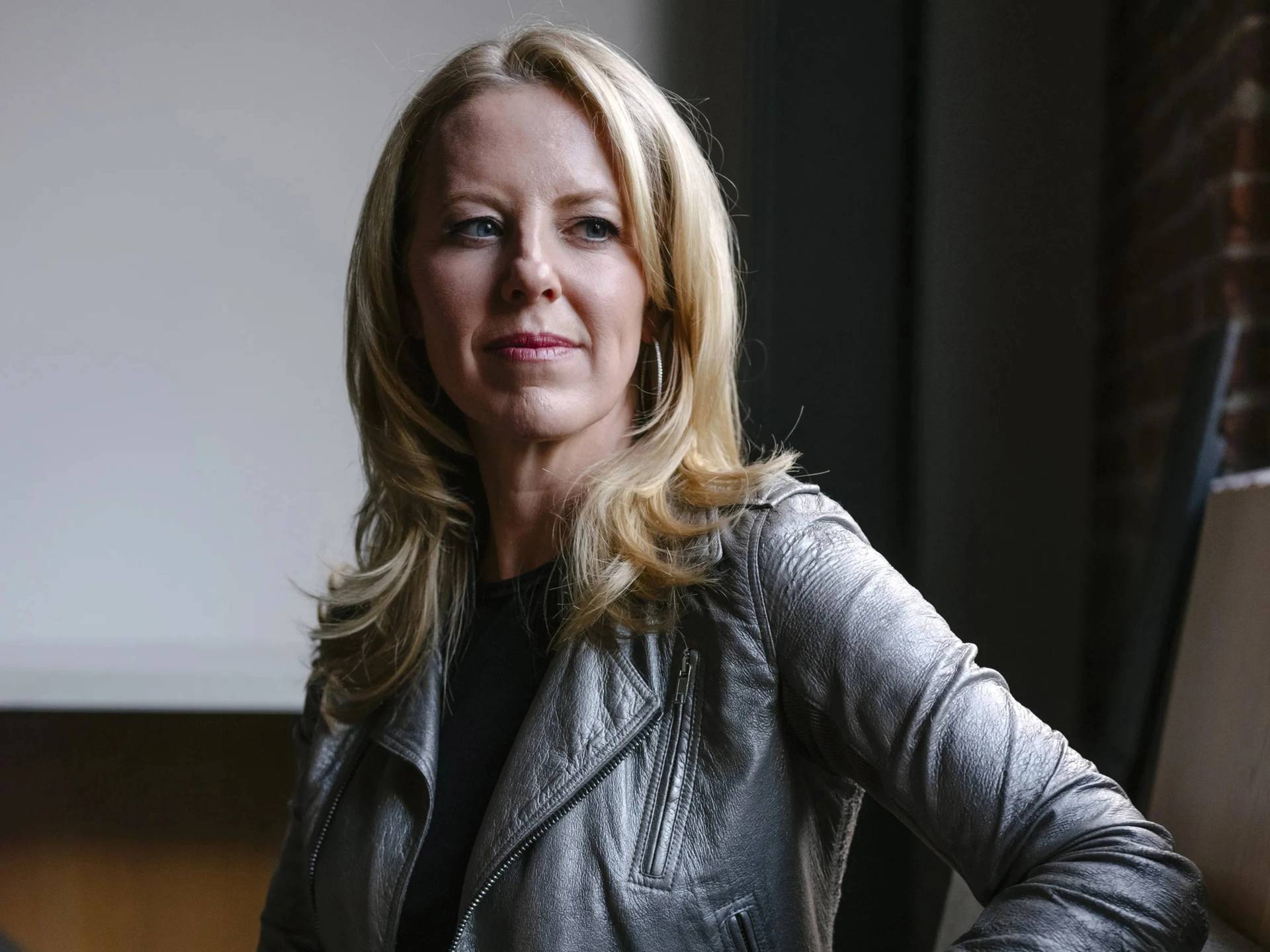Katie Haun
케이티 혼은 웹3에 중점을 둔 벤처 캐피털 펀드인 혼 벤처스의 최고경영자(CEO)이자 창립자입니다. 이전에는 실리콘 밸리에 위치한 벤처 캐피털 회사인 안드레센 호로위츠의 제너럴 파트너 직책을 맡았으며, 세 개의 암호화폐 펀드를 공동으로 이끌었습니다. 또한 코인베이스의 초기 독립 이사로 이사회에서 활동하며, 지명 및 거버넌스 위원회의 의장이자 보상 위원회의 위원으로도 활동하고 있습니다. 혼은 기술 및 규제 컨버전스 주제에 대해 의회 양원에서 증언했으며, 스탠퍼드 경영대학원에서 강의를 진행합니다. [1].
초기 생애 및 교육
케이티 혼은 1993년부터 1997년까지 보스턴 대학교에 다녔으며, 학사 학위를 취득했습니다. 그녀는 학과에서 800명이 넘는 학생 중 수석을 차지했습니다. 최우등(Summa Cum Laude)으로 졸업했으며, 파이 베타 카파(Phi Beta Kappa) 명예 학회에 가입했습니다. 그 후 1997년부터 2000년까지 스탠퍼드 로스쿨에 다녔으며, 법학 박사 학위를 받았습니다. 우등으로 졸업하는 학문적 영예를 안았으며, 스탠퍼드 법학 리뷰의 편집장으로 활동하는 등 활동 및 학회에 적극적으로 참여했습니다. [1].
경력
벤처 캐피털리스트로 활동하기 전, 케이티는 미국 법무부에서 10년 동안 연방 검사로 근무하며 사기, 사이버 범죄 및 기업 범죄 관련 사건을 전문적으로 다뤘습니다. SEC, FBI 및 재무부와 같은 기관과 협력하여 정부 최초의 암호화폐 태스크 포스를 설립했습니다. 재직 기간 동안 RICO 살인, 조직 범죄, 공공 부패, 갱단 및 돈세탁을 포함한 다양한 범죄를 기소했습니다. 또한 법무부 본부의 국가 안보 부서 및 법무 장관실에서 중요한 직책을 맡았습니다. 케이티는 또한 미국 대법원 판사 앤서니 케네디의 재판 연구원으로 근무했으며 스탠퍼드 로스쿨에서 우등 학위를 받았습니다. 그녀는 외교 관계 협의회의 평생 회원입니다. [1].
미국 법무부(DOJ)에서 검사로 11년 동안 근무하면서 혼은 암호화폐에 대해 잘 알게 되었습니다. 그녀는 실크로드 사건에서 두 연방 요원의 비행과 같은 여러 주요 사건에 대한 조사를 감독하고 디지털 통화로 저질러진 범죄를 조사한 DOJ의 암호화폐에 대한 첫 번째 태스크 포스를 설립했습니다. [1].
안드레센 호로위츠
안드레센 호로위츠의 최초 여성 제너럴 파트너로서 혼은 2021년에 22억 달러 규모의 암호화폐 벤처 펀드를 공동 의장하는 책임을 맡았습니다. 이 펀드는 암호화폐 인프라, 확장성 도구, NFT 및 게임 기술을 포함한 다양한 영역에 중점을 두었습니다. 혼은 회사 재직 기간 동안 오픈씨와 같은 중요한 암호화폐 투자를 감독했습니다. 또한 스테이블코인에 대한 제안된 규제 구조에 대한 백서를 공동으로 작성했습니다. [1].
저는 전통적인 벤처 투자자의 틀에 맞지 않았습니다. 더 많은 사람들이 그 틀에 맞지 않아야 한다고 생각합니다. Web3는 정말로 그러한 목소리가 필요합니다. [1]
혼 벤처스
혼은 2021년 12월에 벤처 캐피털 회사인 혼 벤처스를 설립했습니다. 2022년 3월에 이 회사는 5억 달러 규모의 초기 단계 스타트업 펀드와 웹3에 집중하는 더 확고한 회사를 위한 10억 달러 펀드 두 개를 설립했다고 밝혔습니다. [2]. 혼 벤처스의 초기 투자에는 NFT 회사인 Autograph, NFT 마켓플레이스인 오픈씨, 암호화폐 대출 플랫폼인 Moonwell이 포함됩니다. [1].
솔직히 많은 압박감을 느낍니다. 하지만 그것이 팀의 모든 사람에게 동기를 부여한다고 생각합니다. Web3는 인터넷의 새로운 시대이며, 새로운 시대의 투자자가 필요합니다. [2]
혼 벤처스는 Airbnb의 전 임원이자 클린턴 행정부 관리였던 크리스 레인, 조 바이든 대통령의 전 직원이었던 토미카 틸레만, 트위터, 구글, 페이스북 및 코인베이스에서 커뮤니케이션 팀을 관리했던 레이첼 호로위츠를 포함하여 9명으로 구성된 팀입니다. 여러 직원이 안드레센 호로위츠에서 혼을 따라 새로운 펀드에 합류했습니다. 혼은 더 작은 팀을 갖는 것이 회사가 더 민첩하게 움직이고 벤처 캐피털리스트일 뿐만 아니라 "벤처 기여자"로서의 역할을 할 수 있게 해준다고 말했습니다. [2].
저와 같은 투자자와 생태계의 다른 사람들이 이러한 생태계에 참여할 수 있는 다양한 방법에 대해 생각하는 것이 정말 중요하다고 생각합니다.
GENIUS 법에 대한 논평
2025년 6월 17일, GENIUS 법이 상원을 통과한 후 케이티 혼은 이 사건을 미국 금융 혁신의 "분수령"이라고 묘사했습니다. [3]. 그녀는 의회가 처음으로 스테이블코인을 위한 포괄적이고 초당적인 규제 프레임워크를 구체적으로 발전시켰다고 말했습니다. [3]. 혼은 이 법안이 달러의 디지털 미래를 위한 토대를 마련하고 전 세계적으로 중요한 제도적 참여를 위한 발판을 마련한다고 언급했습니다. 이는 그녀와 업계의 다른 사람들이 거의 10년 동안 옹호해 온 것입니다. [3].
혼은 또한 상원 투표가 암호화폐 산업을 넘어 미국이 기술 정책에 접근하는 방식의 상징적인 전환점을 나타낸다고 논평했습니다. [4]. 그녀는 SCOTUS가 쉐브론 존중 원칙을 뒤집은 후 자신의 이전 논평을 언급하면서 양당 모두 프론티어 기술을 이해하고 법안에 대한 구체적인 비전을 가진 지도자를 선출하는 것이 더욱 중요하다고 강조했습니다. [3]. 그녀는 빌 해거티, 커스틴 질리브랜드, 신시아 루미스, 팀 스콧 상원의원과 존 튠 상원 다수당 대표가 GENIUS 법에 대해 진지하고 초당적인 노력을 기울인 점을 인정하며, 기술 전문가와의 협력과 원칙적인 결과 추구를 언급했습니다. [3]. 혼은 이 법안이 최근 법원 결정과 함께 연방 암호화폐 정책 수립에 대한 새로운 기준을 설정하여 이 분야에서 장기적인 명확성을 구축하는 데 도움이 된다고 믿습니다. [3].
